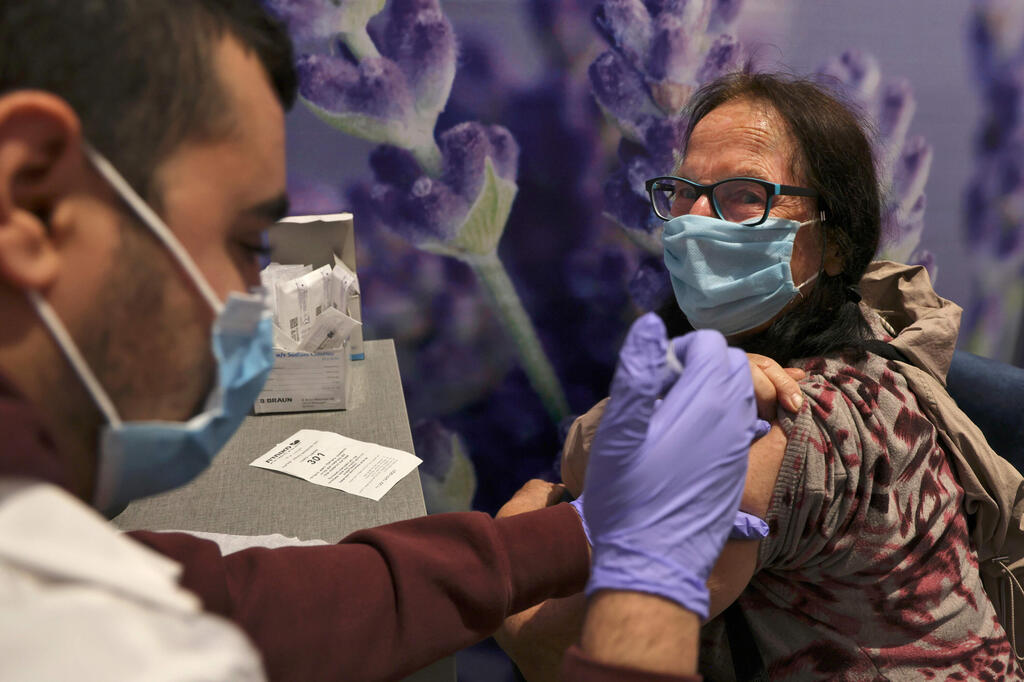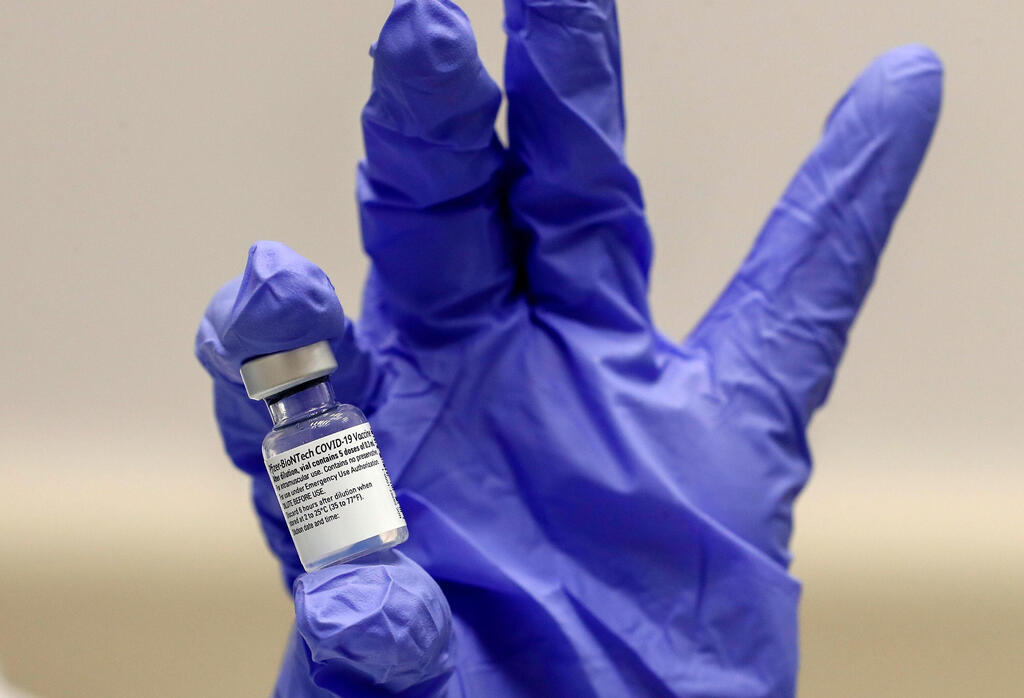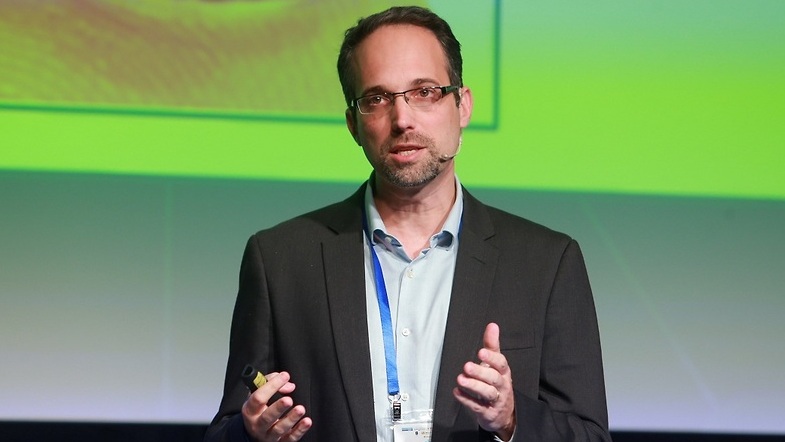Israeli research shows that the coronavirus vaccine made by Pfizer not only protects those vaccinated from contracting COVID-19, it also helps to prevent immune people from spreading the disease to others.
The question of whether the vaccine would help prevent those who had received it from still being carriers was a key issue as the inoculations were rolled out across the world.
3 View gallery


A woman is inoculated against coronavirus at a vaccination center in Jerusalem
(Photo: AFP)
Clinical research conducted by Israel's largest health fund Clalit showed a significant drop in infections among 200,000 people aged 60 and over two weeks after the first vaccinations were given. Not all of the 200,000 people involved in the research had received the vaccination.
Prof. Ran Balicer, head of innovation at Clalit, says that there is no visible effect on general infection rates for days 5 to 12 after the first dose of the two-stage vaccination is administered.
According to the data, there was a slight fall in morbidity on day 13, but by day 14 there was a 33% drop in the spread of the disease between those who were vaccinated and those who were not.
Israel began vaccinating its population using the Pfizer vaccine on December 20, 2020. So far, the country has given the first of the two shots to almost 2 million people and has already begun to administer the second dose.
This is the first evidence that the Pfizer vaccine not only prevents a person from contracting COVID-19 after exposure to the coronavirus, but that it also prevents that exposed person from passing the virus to others.
It is yet unclear if the first vaccine dose reduces morbidity any further than 33%, or what is the percentage would be after the second dose, but Israeli health experts believe that the data shows a significant drop in the spread of the virus.
Prof. Balicer said that while the results are only preliminary, they are "very encouraging."
"It is important to bear in mind that these results do not show that there is full protection from the disease," he said.
"Therefore, those who have been vaccinated must still be cautious, wear a face mask and adhere to public health orders" in order to protect those around them.
Balicer said that experts are hoping to prove in the coming weeks that the vaccine also helps to reduce serious cases of COVID and hospitalization for people who have been infected.



